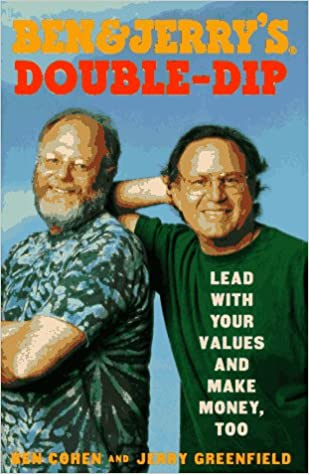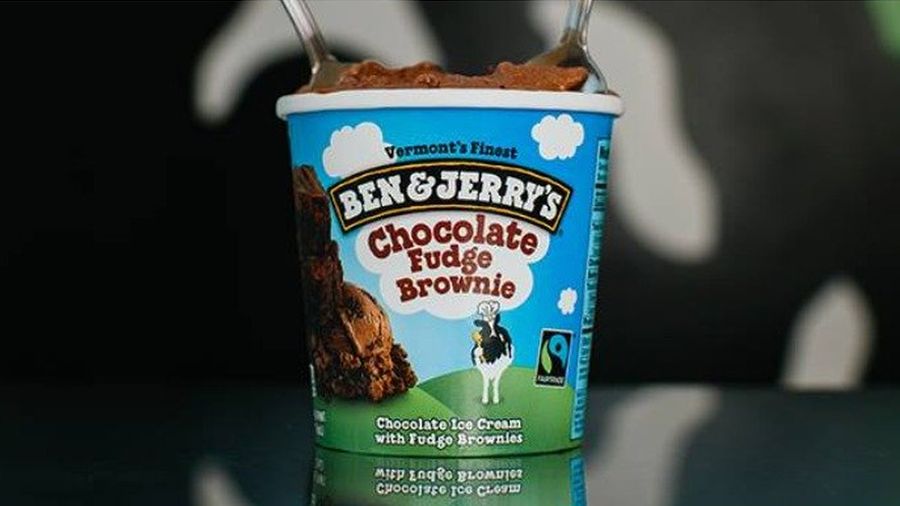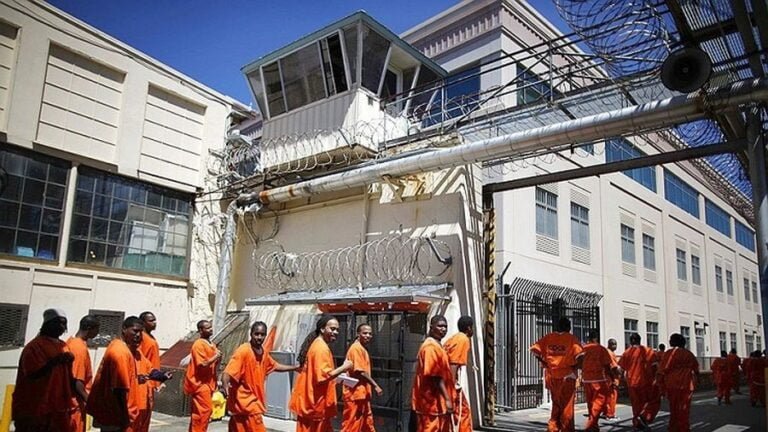Some Cherry Garcia, Please
Cherry Garcia, please, two scoops. No make that Chocolate Fudge Brownie. No, I want Coconut Seven Layer Bar.
In truth, I have always found something vaguely infantilizing about the consumption of ice cream other than very occasionally, in small amounts, and never on the street. And I have little time for “cosmic profit,” in Ray Mungo’s old phrase — the thought that the neoliberal obsession with the market can get us out of the mess it got us into.
But I tip my cap to Ben Cohen and Jerry Greenfield, who announced last Monday that Ben & Jerry’s Homemade Holdings Inc. will no longer sell its Sticky Toffee Cookie, Chocolate Peanut Buttery Swirl, or any of its other concoctions in Israeli settlements on the West Bank or in occupied East Jerusalem. “Inconsistent with our values,” the Vermont company said in a statement put out by Unilever, its parent these last 21 years.

In purely business terms, this means Ben & Jerry’s will not renew the license of its Israeli partner when it expires at the end of this year. But that is mere detail next to the vastly larger political import of this decision. The world needs an honest, principled confrontation with apartheid Israel, its murderous, openly racist leaders, and the criminally culpable settlers they have let run wild. Cohen and Greenfield — Jews, a point to which I will return — have pushed us measurable steps closer to one.
Ice cream, like knowledge and a clear mind, is power. Who would have guessed?
There are numerous ways to read this remarkable turn, which I count momentous. Let us consider them one by one.
Straight off the top, this is a big, big boost for the Boycott, Divest and Sanctions movement, the strength and influence of which is now perfectly evident if we use Israel’s reaction to the Ben & Jerry’s policy as a mirror: The apartheid state’s swoon into freak-out mode since the peddler of creamy sweets took its stand tells us all we need to know about BDS’s accumulating power, the mainstream press’s blackout of the movement be damned.
BDS: Boosted & Under Renewed Attack
BDS is commonly compared with the anti-apartheid campaigns against South Africa of the 1970s and 1980s, and some readers may recall those efforts. It was different and the same all at once. The influence of those long-ago campaigns grew by a gradual accretion, a victory at a time, as BDS is now finding. It is doing as well as one could expect, in short.
But the racism the earlier anti-apartheid movement attacked had no historical referent, no Holocaust story to hide behind. The U.S. government supported white South Africans against the black majority, turning a blind eye to sanctions-busters such as Mobil Oil (as it was then incorporated), but it had no moral cover as it did so. The policy was covert insofar as Washington could keep it out of sight.
Things are different now, as is readily evident. More than 30 U.S. states already have anti–BDS laws on their books. Many more cities, towns, and counties do, too. Courts have ruled some of these laws unconstitutional. Maryland, Georgia, Texas (yes, Texas) and Arkansas have struck down legislation banning boycotts on the obvious grounds: They violate our rights to free speech and assembly.
But this matters not one jot in Washington. “We firmly reject the BDS movement, which unfairly singles out Israel,” Ned Price, the front man at the State Department, said in a press briefing in response to the new Ben & Jerry’s position. Senators Marco Rubio and Joe Manchin — a nice bipartisan touch here — just reintroduced anti–BDS legislation that got nowhere when they first brought it to a vote a couple of years’ back. This time it might.
And here come the Israelis. “Over 30 states in the United States have passed anti–BDS legislation in recent years,” Foreign Minister Yair Lapid tweeted the same day the announcement with Ben & Jerry’s name on it came out. “I plan on asking each of them to enforce these laws against Ben & Jerry’s. They will not treat the State of Israel like this without a response.”
The next day Gilad Erdan, Israel’s ambassador to Washington, sent letters to 35 governors asking them to pressure Ben & Jerry’s to reverse course. “We view this decision very severely,” Erdan’s letter said, “as it is the de-facto adoption of anti–Semitic practices and advancement of the de-legitimization of the Jewish state and the de-humanization of the Jewish people.”
What gall. The dehumanization of the Jewish state: “The Jewish state” has got this done all on its own as it has systematically dehumanized Palestinians for the past seven decades.
The Lessons

We must all take the lessons here. They are grave.
- One, while we must wait to see how various states respond to these new circumstances, the thought that we are supposed to trust our leaders to uphold our constitutional rights to free speech and assembly just got more preposterous than it already was. These rights are now straight-in-your-face at issue and it will be a fight to protect them. One is hardly surprised it was the Israel–Palestine question that now forces the case. American officials and pols do not speak out of principle on this issue. They are playing to American Jewish votes (as they understand this constituency) and the Israel lobby in Washington. Nothing gets in the way of their pandering.
- Two, consider the hard-line Biden regime’s position on BDS. Does it get more anti–American than this flagrant, shameless opposition to the First Amendment? The struggle of Palestinians for their rights and freedoms is thus the struggle of every American now. The sooner we get this congruence into our heads the clearer our heads will be.

The Israelis, missing no opportunity to intimidate, also went to work in Ben & Jerry’s backyard. Prime Minister Naftali Bennett immediately turned on the heat in a telephone call to Unilever, the ice cream maker’s parent company since Cohen and Greenfield sold a controlling interest at the turn of the millennium.
Bennett promised CEO Alan Jope aggressive action against the Ben & Jerry’s boycott and threatened “severe consequences” if its subsidiary held to its position.
Now it gets messy. Unilever, it transpires, gazumped Ben & Jerry’s planned statement last Monday and issued its own without its subsidiary’s authorization. It included a commitment — to continue doing business in Israel proper — that Ben & Jerry’s had no intention of making. This is in violation of the 2000 acquisition agreement, which stipulates that Cohen and Greenfield have a contractual right to continue their various social and political campaigns unimpeded.
Jope appears to have been running scared since last week, assuring investors that Unilever had nothing to do with the Ben & Jerry’s plans and that the British company’s business in Israel will continue. Two larger questions confront us.
Scrape away the detail, and among Ben & Jerry’s assertions in committing to boycott Israel — all of it, it turned out — is that there are values other than market value and the company intends to honor one of these. The importance of this position cannot be overstated: It is key to BDS’s eventual success.
The immediate question is whether Ben & Jerry’s will hold to this commitment or fold under what is already emerging as intense pressure intended to inflict commercial damage. [The owner of the Israeli license to sell Ben & Jerry’s said: “When you mix politics with ice cream, you do not know where it will stop.”]
The larger question is whether other companies will follow now that Ben & Jerry’s has brought the boycott campaign squarely into the global corporate sector.
My best guess is that Cohen, Greenfield, and their board will stay the course. A few years ago Airbnb stepped back from a similar commitment, readers may recall. But Cohen and Greenfield are timber cut from a different forest. They are aging counterculture figures whose commitments run far deeper than those of the post-adolescents who run companies such as Airbnb and whose values seem base (as Jope’s are), in no wise as elevated as Ben & Jerry’s are.
In time, and maybe in a short time, it is also likely other companies around the world will follow Ben & Jerry’s example. This is among the biggest reasons we should count the war over ice cream important: It’s an American company, it’s a highly visible company, it’s a loved company, and the things it stands for are greatly admired.

It is also significant that Cohen and Greenfield are Jews. Israeli officials, in their usual way, were profligate with their charges of anti–Semitism last week, but since the tragic events of last May in Jerusalem and Gaza stirred the entire world, this tired trope seems to be wearing extremely thin. Cohen and Greenfield now take their places alongside other prominent Jews — Richard Falk and Norman Finkelstein are outstanding examples — to get this point definitively straight: This isn’t about Jews; it’s about Israel.
Cohen and Greenfield make another useful point, too. The assumption that all Jews must support Israel is right up there with all black Americans must vote Democratic. It is a cheap insult in both cases, as if to say Jews (and blacks) need not think for themselves: They can just sit here being Jews (and blacks) and all they are expected to stand for is determined by these identities.
There is also the question of timing. In my read the Israeli leadership and those appalling people running around Jerusalem and other cities shouting “Death to Arabs!” and “Kill them all!” have been after their own “final solution” to the Palestine question since the later years of the Netanyahu regime.
The events of May reflected this, but they cost Israel dearly in public opinion around the world. It looks to me as if the Ben & Jerry’s boycott decision, although the board had been considering it for years, arose from the videoed and televised disgraces of those weeks.

Our mainstream press and broadcasters, The New York Times per usual leading the way, now urge us to indulge some ridiculous fantasy that Bennett offers relief from the excesses of the Netanyahu years. I wish this were a joke.
Bennett, mark my words, will sooner or later perform the unimaginable feat of making Bibi look good. He is on the record as racist and a boastful murderer of Palestinians, and simply because we are not reading about this does not change the truth of it. What we saw last May looks like an interim in a campaign to ethnically-cleanse Palestinians, which Bennett fully intends to pursue by way of the this-is-our-moment perception that prevails on the Israeli right.
Ben & Jerry’s, then, reflects the recent past and the probable way forward. It acted after long deliberations but in immediate response to events in the recent past. In the best outcome, it is also a harbinger as to where BDS is headed: Its sphere and reach appear set to grow larger now.
These remarks are offered in defense against those who have dragged Israel into the gutter and disgraced Judaism in so doing. One stands against Israel as it is now constituted out of regard for the greatness of Judaism’s heritage and all its lessons — Psalms, Ecclesiastes, that brief, strange, seldom-read book, Habakkuk (an admittedly eccentric favorite of mine).
It is out of love of these things and respect for the consciousness of individual Jews that one must hold apartheid Israel resolutely in contempt. To assent to its conduct, or to acquiesce silently in it, would be to offend every Jew alive and to disgrace the memory of those who died in the Holocaust. The “Jewish state” has done to Judaism what evangelical Christians have done to the Christian heritage and what fanatical jihadists have done to the greatness of Islam. The desecration is no different one case to the next.
Ben Cohen and Jerry Greenfield said nothing more than “No!” last week. As we all must.
Chip Happens, all right. Now pass the Boots on the Moooo’n and the Chunky Monkey. Ben Cohen and Jerry Greenfield deserve a little party.







